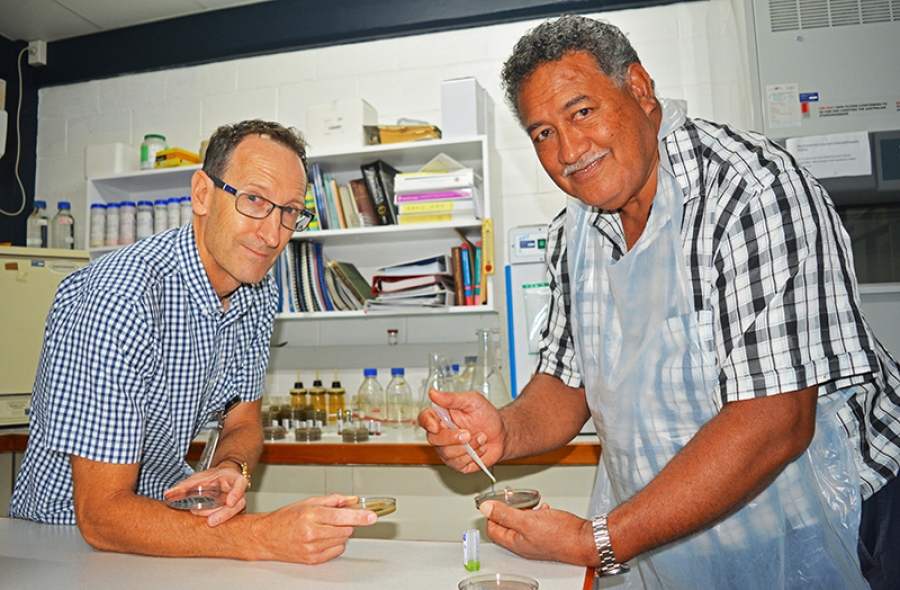Updated guidelines keep antibiotics working: TMO Pharmacy
Tuesday 22 November 2022 | Written by Supplied | Published in Health, National

New Zealand infectious disease specialist and microbiologist Dr Richard Everts (left) with Rarotonga hospital chief microbiologist Geoffrey Wuatai working on a sample for antibiotic resistance. 18022710
For 10 years Dr Richard Everts has been visiting the Cook Islands with one main aim – to keep antibiotics working!
As an infection specialist, he has dealt with antibiotics in New Zealand, Australia and the Pacific Islands for over 20 years. Antibiotics are medicines that kill bacteria, and every day they save lives across the Pacific.
Each time he visits the Cook Islands, Dr Everts finds out exactly what bacteria are causing infections here. This information is provided by Geoff Wuatai and Peia Ben who are scientists in the microbiology laboratory at Rarotonga Hospital.
Each year Wuatai and Ben grow thousands of bacteria in the laboratory from samples taken from people all around the Cook Islands, and they measure which antibiotics will work against these bacteria.
They keep all the detailed results of their work on a computer database at Rarotonga Hospital. Dr Everts analyses these results and figures out which antibiotics are best to treat different infections in the Cook Islands.
“You can’t just take antibiotic guidelines from New Zealand or Australia and use them in the Cook Islands,” Dr Everts said. “The antibiotics that are best for a skin infection in the Cook Islands are somewhat different from those in other countries.”
Information on which antibiotic to use for each infection, what dose, and for how many days, is then written into a handbook of recommendations for Cook Island doctors, nurses and pharmacists. This handbook was first written by Dr Everts in 2015, was updated in 2018, and is being updated again this year.
While here, Dr Everts uses the Cook Islands antibiotic handbook to teach Te Marae Ora staff how to use antibiotics correctly. “Antibiotics are a precious resource, and we must all use them wisely,” he says.
Dr Everts and Geoff Wuatai have also researched some local Cook Islands plants and have discovered that several leaves, nuts, and flowers have antibiotics in them. Piripiri kerekere is the strongest of them all. The leaves and flowers kill Staphylococcus aureus – bacteria that are responsible for most skin infections.
Dr Everts noted: “It’s fascinating that for hundreds of years Cook Islanders have used natural products on skin sores and only now we’re discovering how some of these might work.”
“I really enjoy visiting the Cook Islands and doing this work. It’s very rewarding and I enjoy working with TMO staff.”
Dr Everts’ visited Rarotonga in the first week of November. His work in the Cook Islands is supported by the World Health Organization.
- TMO Pharmacy









































